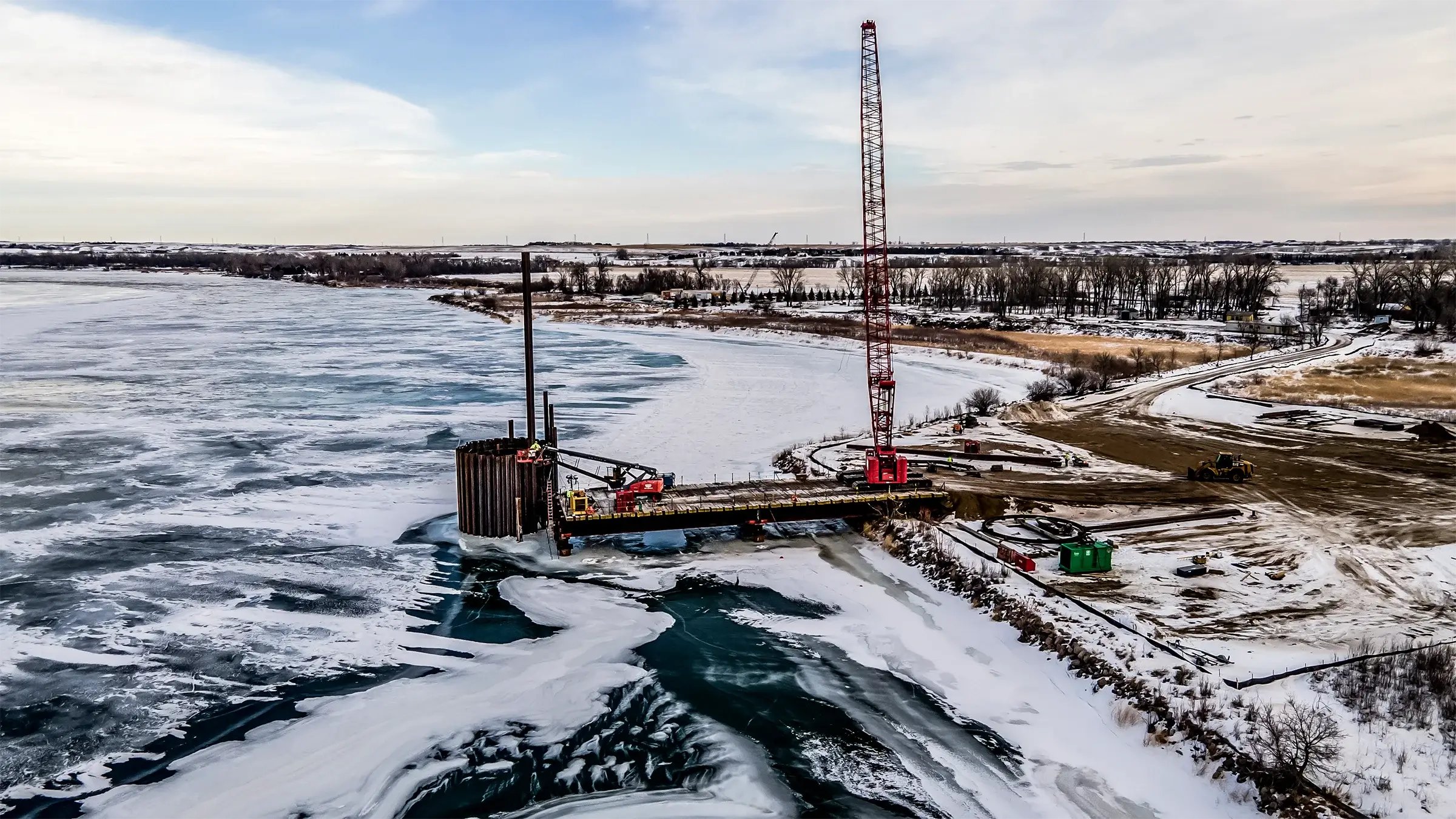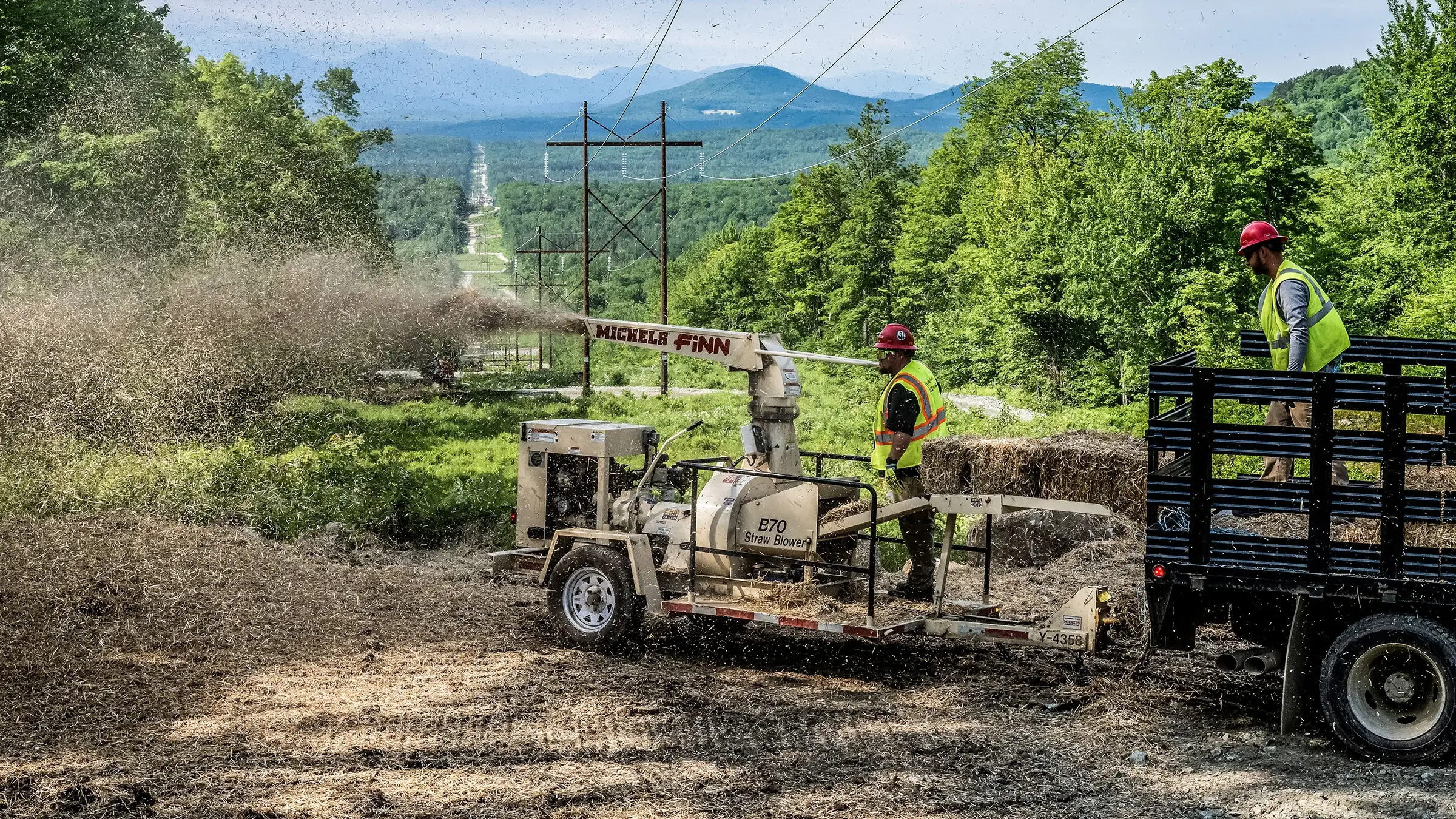
Environmental
Sustainable Standards
Michels is committed to good corporate citizenship and environmental leadership for a healthy environment. This commitment drives our operations and provides our customers with safe, reliable, and responsive construction services conducted in an environmentally responsible manner. We hold ourselves accountable to the high standards that have guided Michels since 1959 and believe our strategic, thoughtful actions today allow us to positively impact tomorrow.
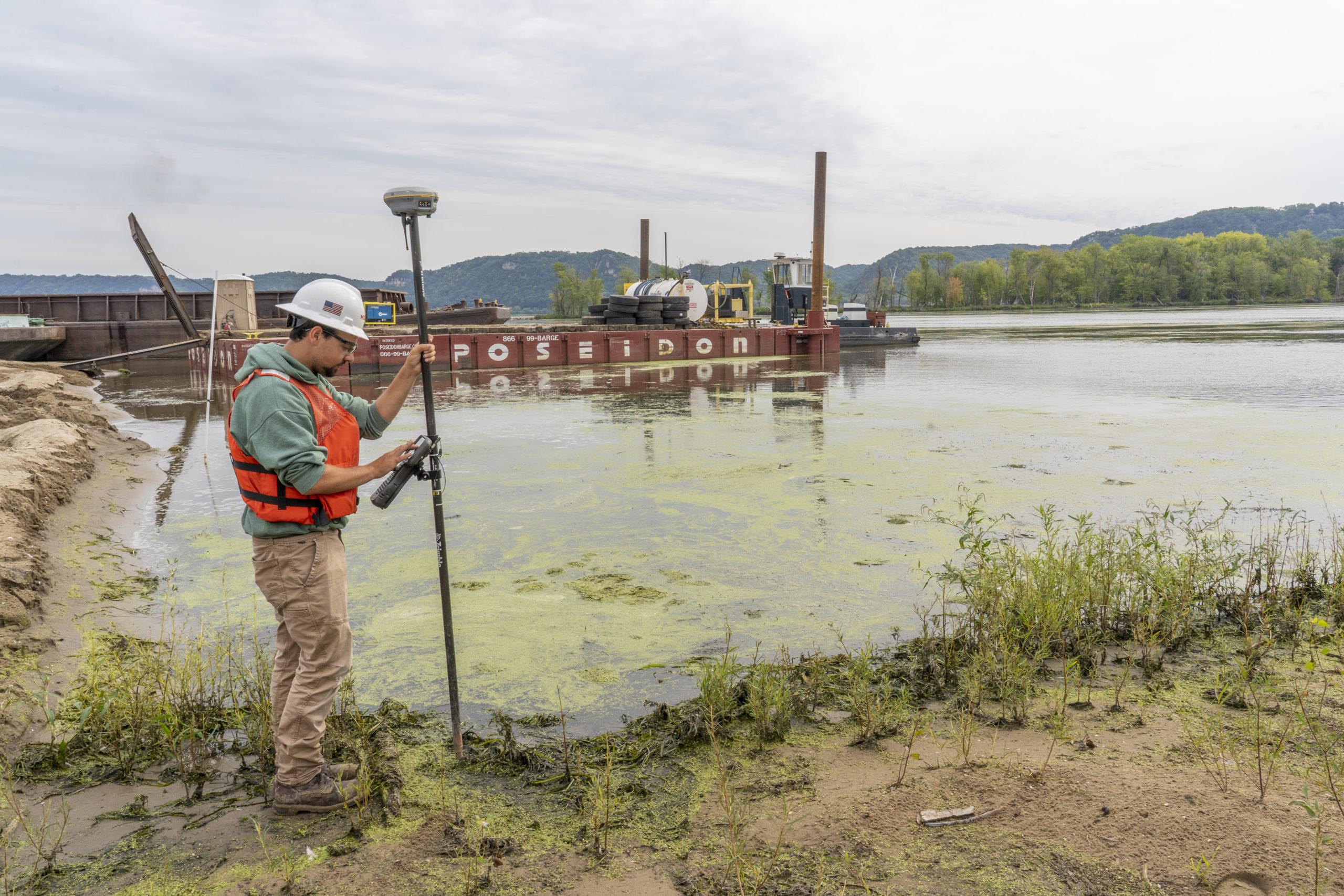
Our Commitment
We firmly believe our commitment to the environment benefits our customers, shareholders and the communities we serve. As we adapt to a changing world, we maintain current practices and find new ways to strengthen our focus on innovative infrastructure solutions and environmentally sound practices.
Sustainability Initiatives
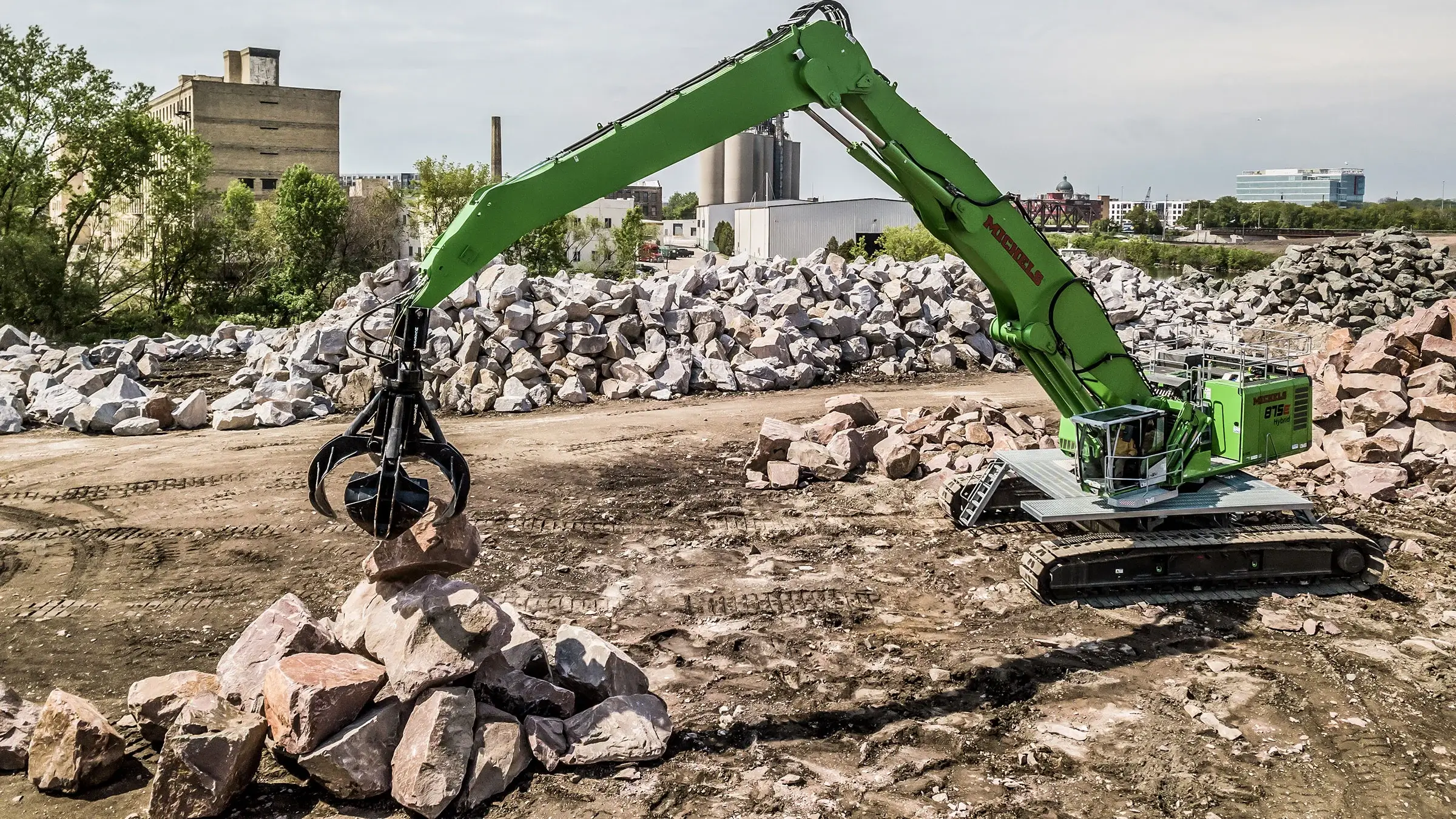
Greenhouse Gas Reduction
On average, Michels replaces 5% of our construction vehicles and equipment with newer units powered by engines that meet or exceed EPA Tier 4 emissions standards.
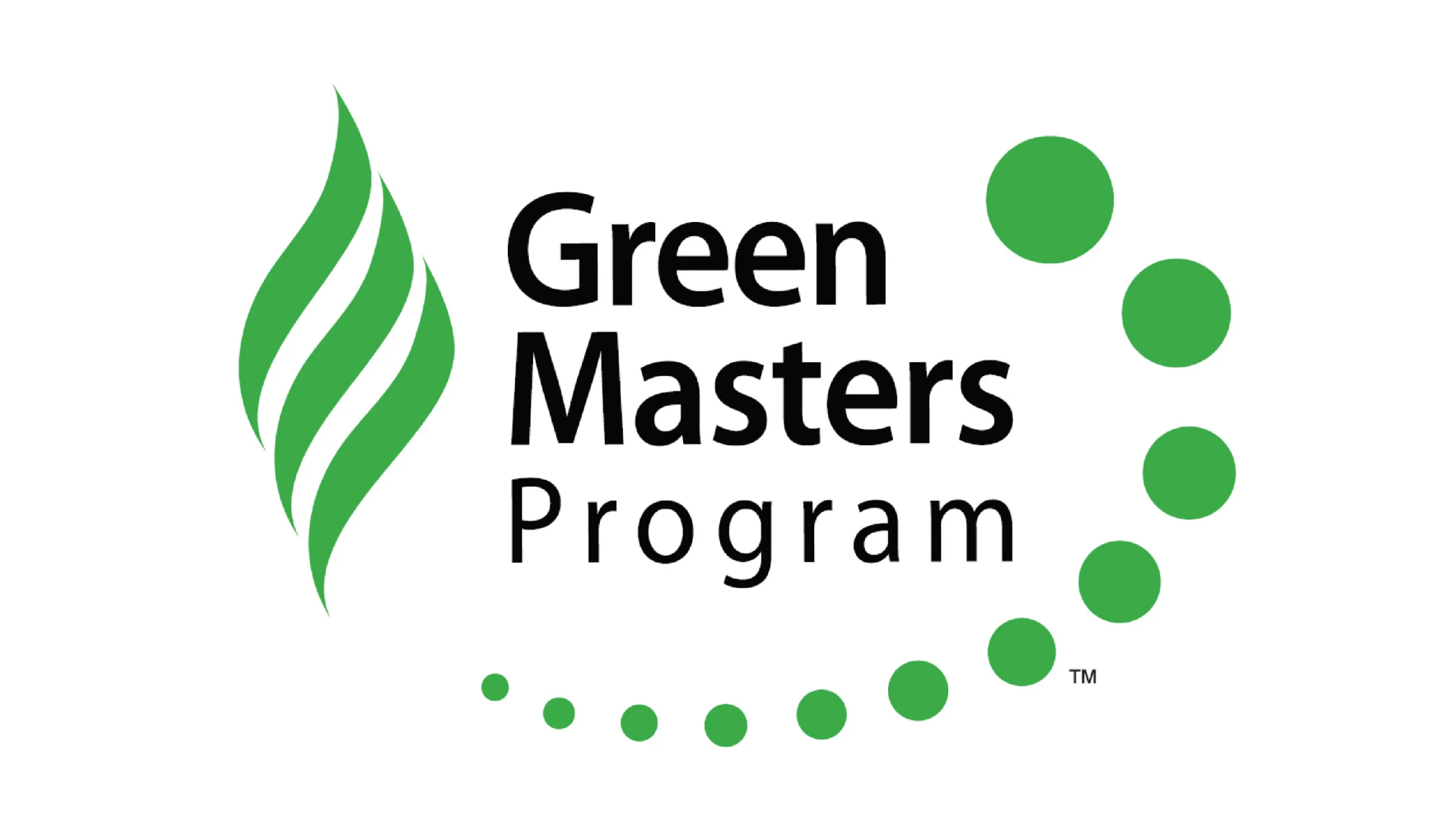
Green Masters
Michels participates in this voluntary program for improving environmental performance, earning green professional status for the construction industry. The Green Masters Program identifies nine key areas that define business sustainability: energy, carbon, water, waste management, transportation, supply chain, education and outreach, workforce and governance.
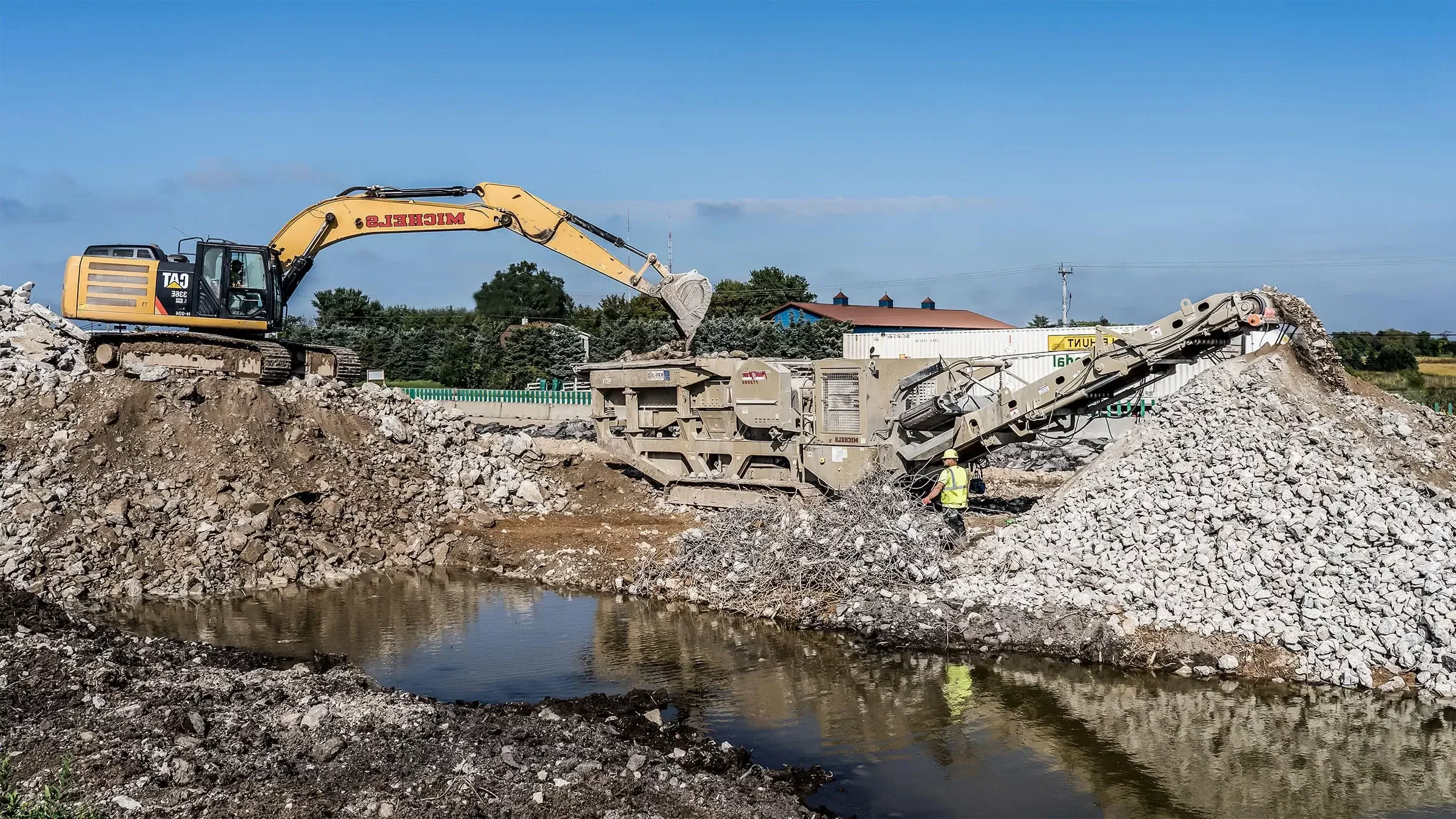
Waste Reduction and Recycling
Michels continues to recycle tons of construction debris, such as concrete and asphalt, in our non-metallic mining operations. By repurposing used concrete and asphalt into usable aggregate, we help save space in landfills and preserve natural resources.
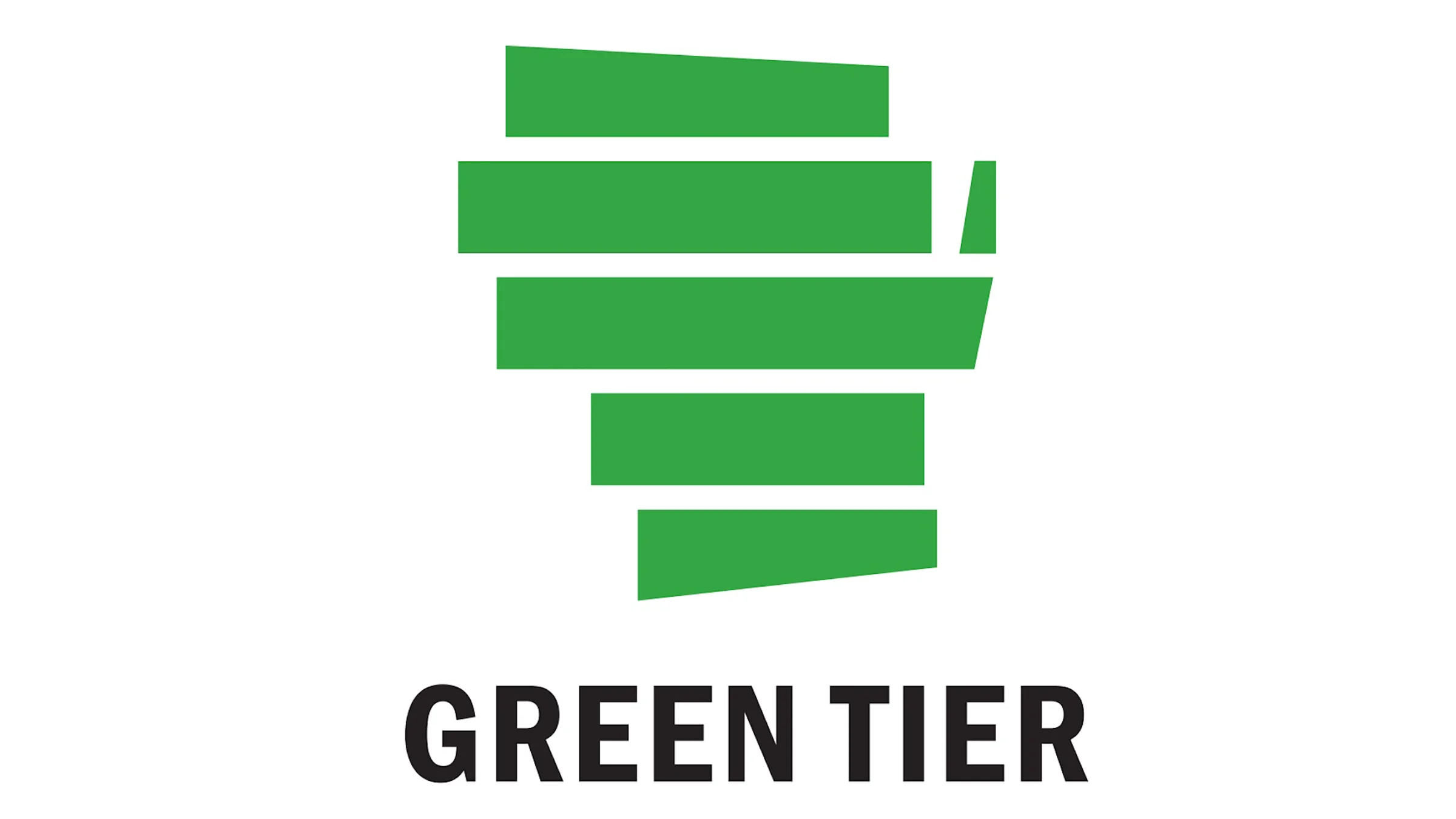
Wisconsin Green Tier Program
Michels promotes continual environmental improvements at corporate support facilities across North America. In 2015, we were accepted into the Wisconsin Department of Natural Resource’s Green Tier Program, which recognizes superior environmental performance and sustainability initiatives that go above and beyond regulatory requirements. As part of the program, we use an Environmental Management System (EMS) at our corporate campus in Brownsville, WI, equivalent to ISO 140001, which manages our commitment to environmental compliance, pollution prevention and continual improvement.
- Solutions Showcase
- Building a Better Wisconsin
- Core Values in Action
- Living by Core Values
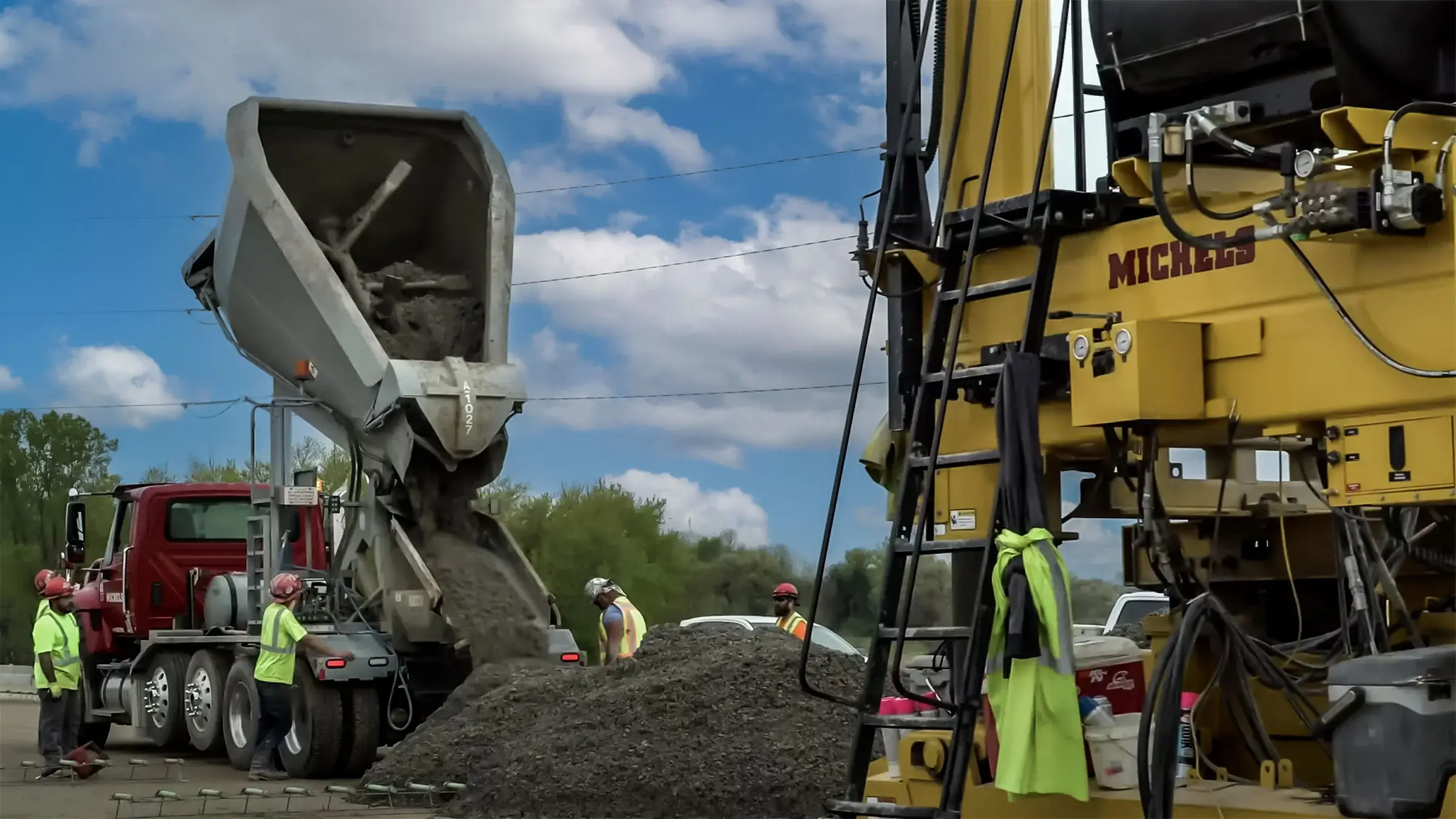
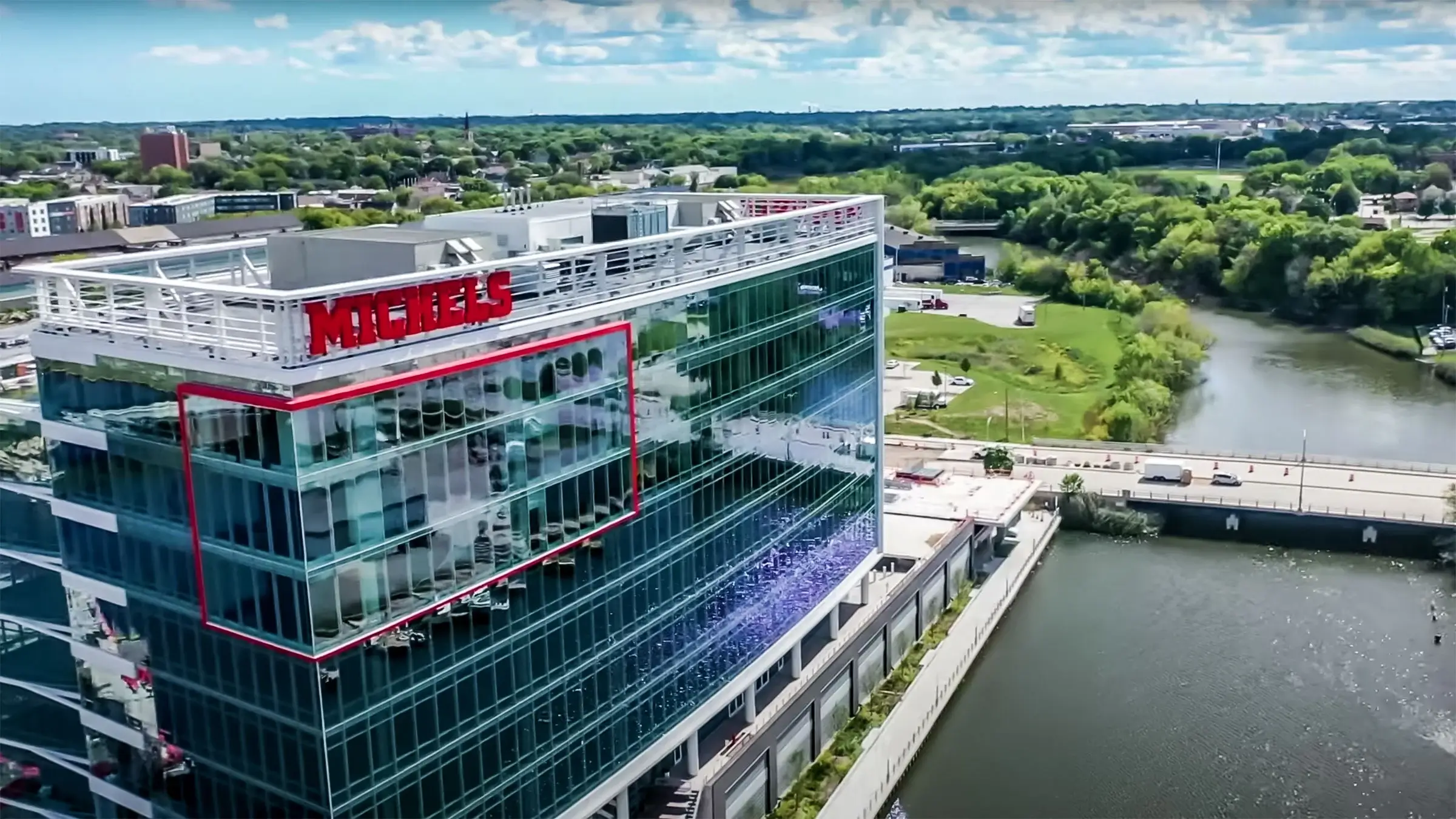
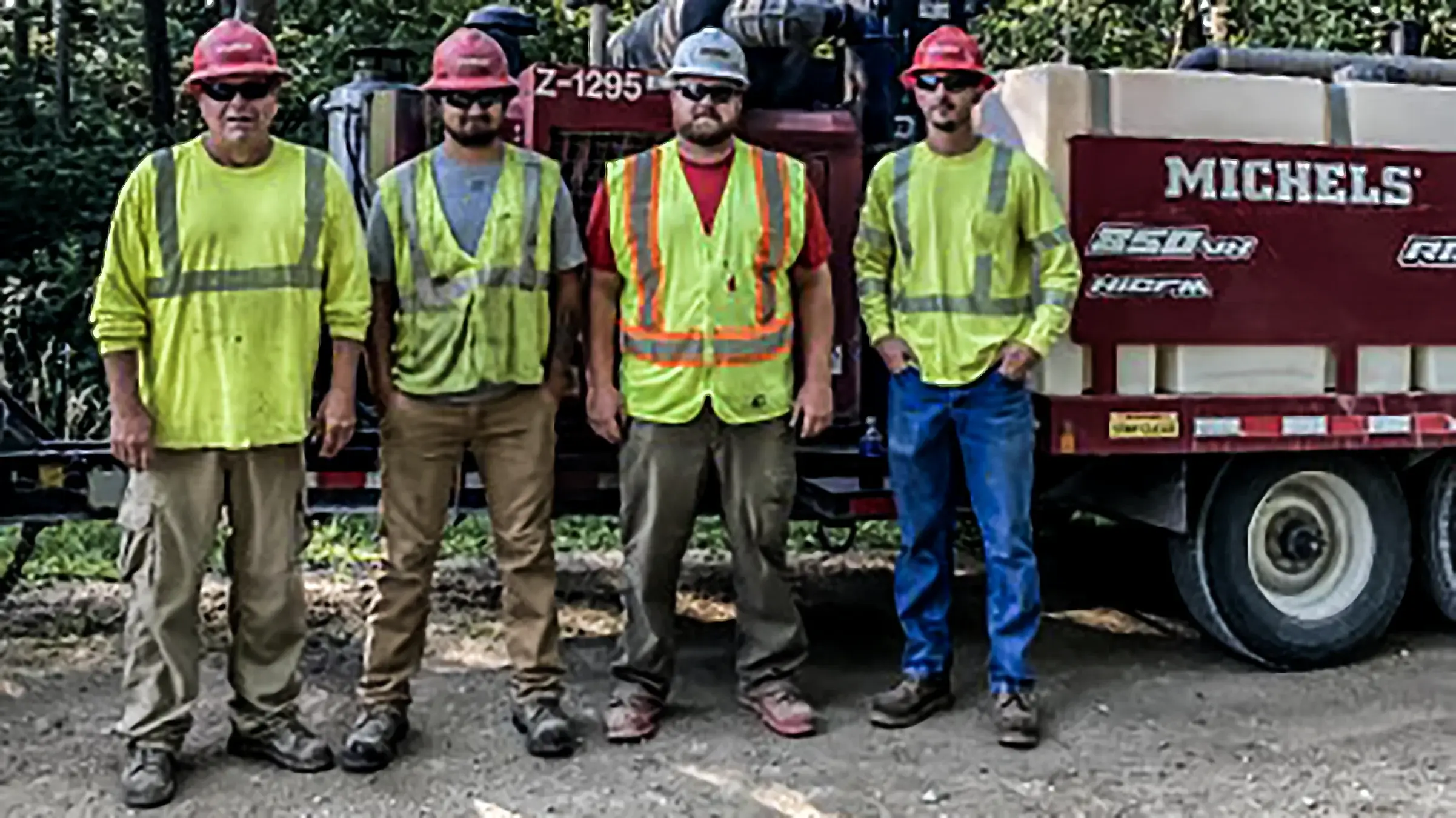
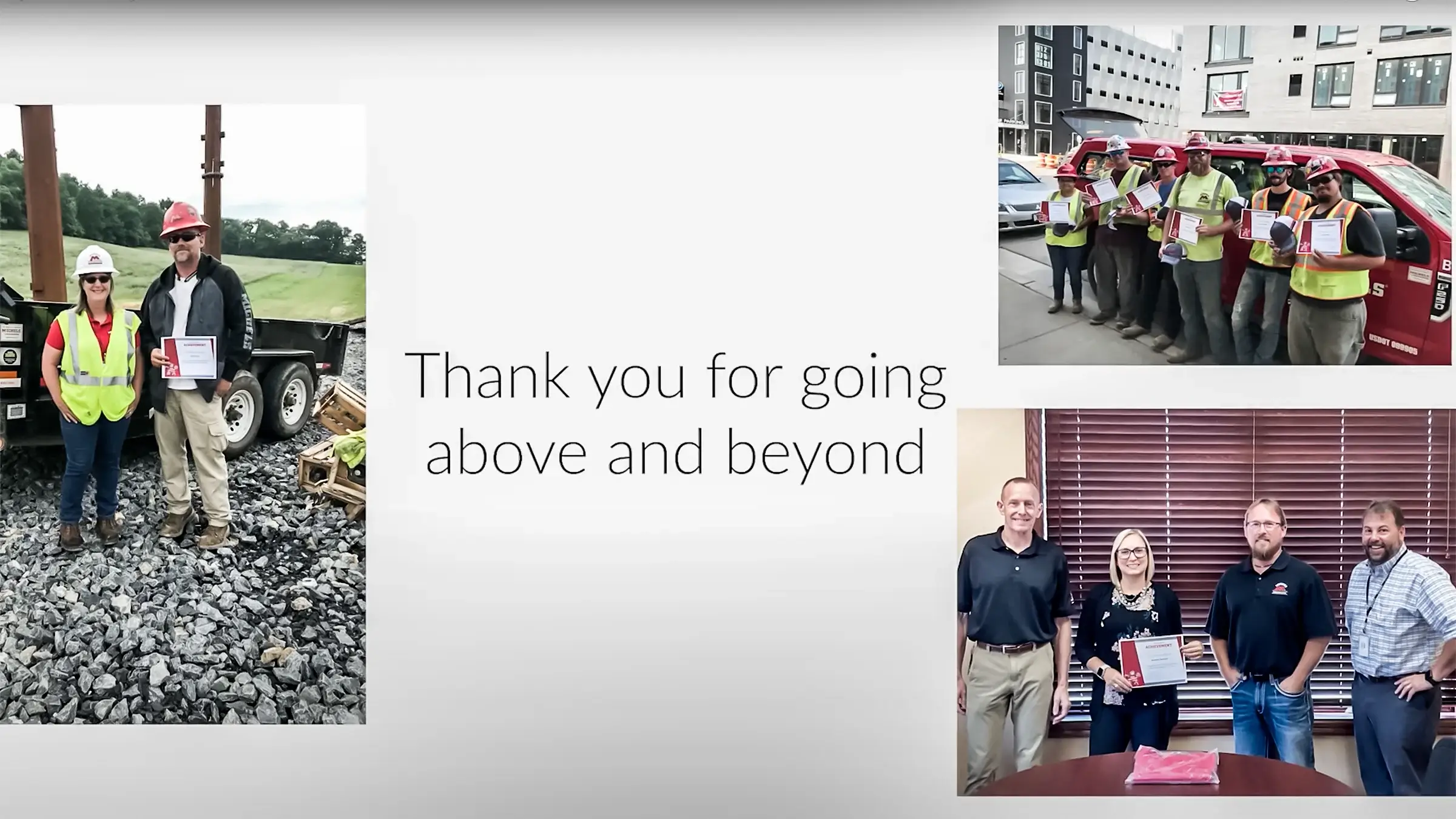
Contact Us
Thank you for taking time to learn more about who we are and what we do. If you need additional information or are in need of a solution not addressed on these pages, please submit a message with your contact information.
